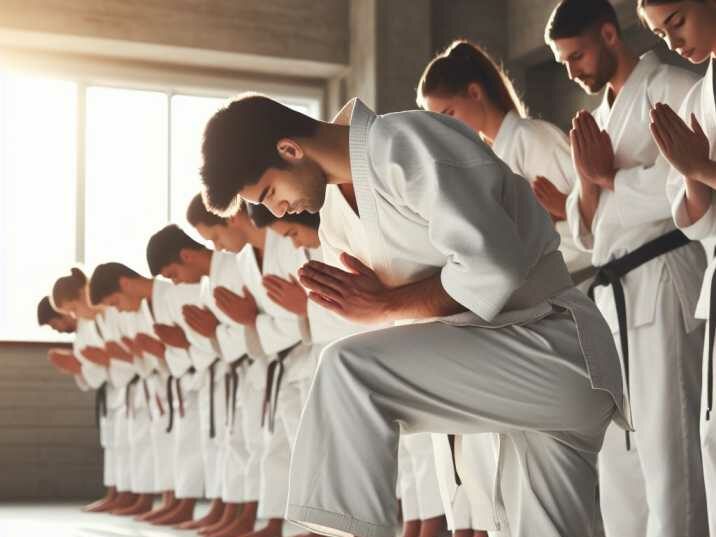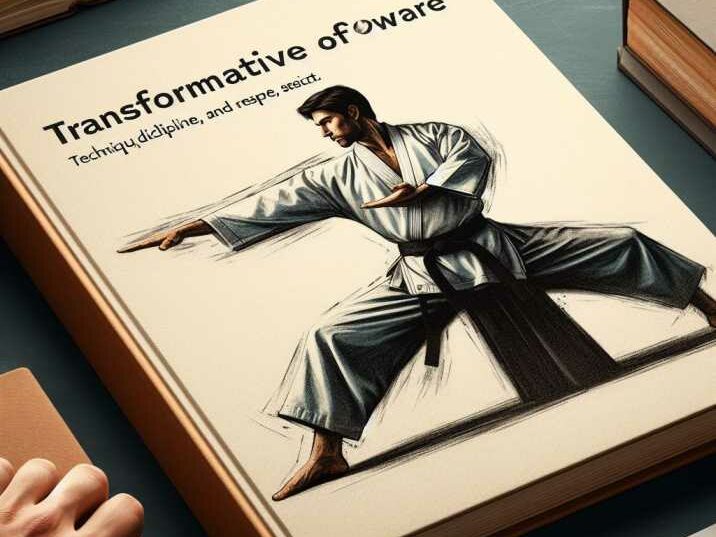Introduction:
Table of Contents
In a world where distractions abound and discipline seems to be a diminishing virtue, parents and educators are constantly seeking avenues to instill essential values in their children. One such avenue, Karate, has stood the test of time as a powerful tool for promoting discipline and respect. Rooted in ancient traditions and philosophy, Karate goes beyond physical prowess to develop character traits that are vital for success in all aspects of life. In this article, we delve into the profound ways in which Karate Fosters Discipline and Respect, offering insights for both parents and students alike.
Karate Fosters Discipline and Respect:
The Essence of Discipline in Karate:
Karate, often translated as “empty hand,” is not merely a form of self-defense but a way of life. At its core lies the principle of discipline, which is ingrained in every aspect of training. From the moment students bow upon entering the dojo to the meticulous practice of techniques, every action in Karate is guided by a sense of discipline. Through repetitive drills and exercises, practitioners learn the value of consistency and perseverance, essential traits for success in any endeavor. Furthermore, the hierarchical structure within Karate dojos reinforces the importance of respecting authority and following instructions diligently.
Cultivating Respect Through Karate:
Respect is a cornerstone of Karate philosophy, with practitioners expected to demonstrate reverence towards their instructors, fellow students, and the art itself. Central to this ethos is the tradition of bowing, which symbolizes humility and mutual respect. Moreover, Karate emphasizes the concept of “Senpai” (sen-pie) and “Kohai“ (ko-high), where senior students mentor and guide their juniors, fostering a culture of respect and camaraderie within the dojo. Through this mentorship dynamic, students not only learn from their instructors but also develop empathy and understanding towards their peers.

The Role of Etiquette in Karate:
Etiquette, or “Reiho” (ray-ho), is a fundamental aspect of Karate training, encompassing a set of customs and protocols that govern interactions within the dojo. From bowing to entering and exiting the training area, adherence to etiquette instills a sense of decorum and mutual respect among practitioners. By following these rituals with sincerity and mindfulness, students cultivate a heightened awareness of their actions and their impact on others, fostering a culture of respect and harmony.
The Transformative Power of Karate:
Beyond physical fitness and self-defense skills, Karate offers a holistic approach to personal development, nurturing individuals both mentally and emotionally. Through the rigorous demands of training, practitioners learn to overcome challenges, confront their limitations, and strive for continuous improvement. This journey of self-discovery instills a profound sense of self-discipline and self-respect, laying the foundation for success in all endeavors.
Table of Information Karate Fosters Discipline and Respect:
| Topic | Key Points |
|---|---|
| Discipline in Karate | Ingrained in every aspect of training |
| Emphasis on consistency and perseverance | |
| Hierarchy reinforces respect for authority | |
| Respect in Karate | Reverence towards instructors and peers |
| Tradition of mentorship fosters camaraderie | |
| Etiquette promotes decorum and mutual respect | |
| Transformative Power | Holistic approach to personal development |
| – Overcoming challenges and striving for excellence |
Conclusion:
In a society where discipline and respect are increasingly undervalued, Karate serves as a beacon of hope, offering a pathway to personal growth and self-mastery. By immersing oneself in the rich traditions and teachings of this ancient art, individuals can cultivate the virtues of discipline and respect, empowering themselves to navigate life’s challenges with grace and integrity. Whether you are a parent seeking to instill essential values in your child or a student aspiring to unlock your full potential, Karate offers a transformative journey of self-discovery and empowerment.

FAQs:
- What age is suitable to start learning Karate? Karate can be practiced by individuals of all ages, with many dojos offering specialized classes for children as young as 4 years old.
- How often should one attend Karate classes to see progress? Consistency is key in Karate training. Attending classes at least two to three times a week is recommended to see noticeable improvement.
- Is Karate only about physical strength and agility? While physical fitness is an integral part of Karate, the discipline encompasses mental and emotional development as well, emphasizing qualities such as focus, resilience, and respect.
- Can Karate help in improving self-confidence? Yes, Karate empowers individuals to overcome challenges and obstacles, leading to increased self-confidence and self-esteem.
- Are there competitions in Karate, or is it solely for self-defense? Karate offers opportunities for both competitive sparring and traditional forms (kata) competitions, catering to a wide range of interests and goals.


